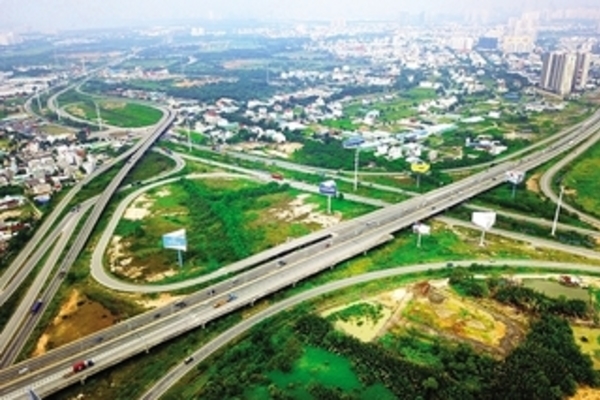 |
|
Le Minh Hung, Governor of the State Bank of Vietnam. Photo: Thanh Nien
|
The governor of the State Bank of Vietnam (SBV) has been concerned about a large amount of outstanding loans for build-operate-transfer (BOT) and build-operate (BT) infrastructure projects at risk of turning to be non-performing.
Some VND53 trillion (US$2.27 billion) had been loaned to BT and BOT projects is likely to be restructured and become non-performing due to low revenues compared to initial financial plans, Governor Le Minh Hung raised the issue at the 8th sitting of the 14th National Assembly (NA), which opened on October 21, the Saigontimes reported.
In the year to September, bank loans for BT and BOT infrastructure projects edged up 1.85% against the end of 2018, making up 1.4% of the total outstanding loans, statistics by the SBV showed.
He pointed out that many BOT and BT projects had been completed and opened to traffic, but their commercial value fell far short of expectations.
To soon solve the problem, the governor proposed the government to (1) issue proper policies on mobilizing resources to develop transport infrastructure; (2) take different measures to mobilize long-term capital for the projects; (3) tackle problems relating to toll collection and the launch of electronic toll collection throughout the country.
Unsolved issue
In 2017, the SBV repeatedly warned commercial banks of risks including non-transparency and investors’ weak financial capability from BOT and BT transport projects, according to the Doanh Nhan Sai Gon magazine.
A central bank report released in 2017 showed that four banks namely BIDV, Vietcombank, VietinBank and SHB had provided large fundings for BOT transport projects, accounting for 91% of their total outstanding loans in some certain periods of time.
As of end-July 2019, outstanding loans for BOT transport projects was lower to VND99 trillion (US$4.25 billion) following the central bank’s request on tightening lending to this kind of projects.
However, currently about 30 BOT transport projects are insolvent.
Many bank experts have warned that loans to BOT and BT transport projects poses risks due to a long-term duration which doesn’t match banks’ short-term lending.
Dr. Can Van Luc, chief economist of BIDV, said capital for BOT transport projects must come from other sources in the capital market but not banks which focus on short-term deposit and lending.
The capital should include 15-20% from the investor, 40-50% from banks, 20-25% from bonds (both government and corporate ones), and the remaining from international organizations, he said. Hanoitimes
Linh Pham

Financing for BOT projects in Vietnam on ice
Vietnam has closed its doors to international investors joining the Eastern Cluster of the North-South Expressway initiative, catering to domestic groups only.

BOT projects need careful consideration
The Government's website (baochinhphu.vn) recently published an interview with Dr Tran Chung, President of the Association of Private Investors in Road Transport, on strong and weak points of BOT projects in Vietnam.

DRVN asked to lift a suspension on fee collection at four BOT projects
Deputy Minister of Transport Le Dinh Tho on Monday asked the Directorate for Roads of Viet Nam (DRVN) to lift the suspension on fee collection at four BOT (build – operate – transfer) projects.
 The central bank warned commercial banks of this issue two years ago.
The central bank warned commercial banks of this issue two years ago.